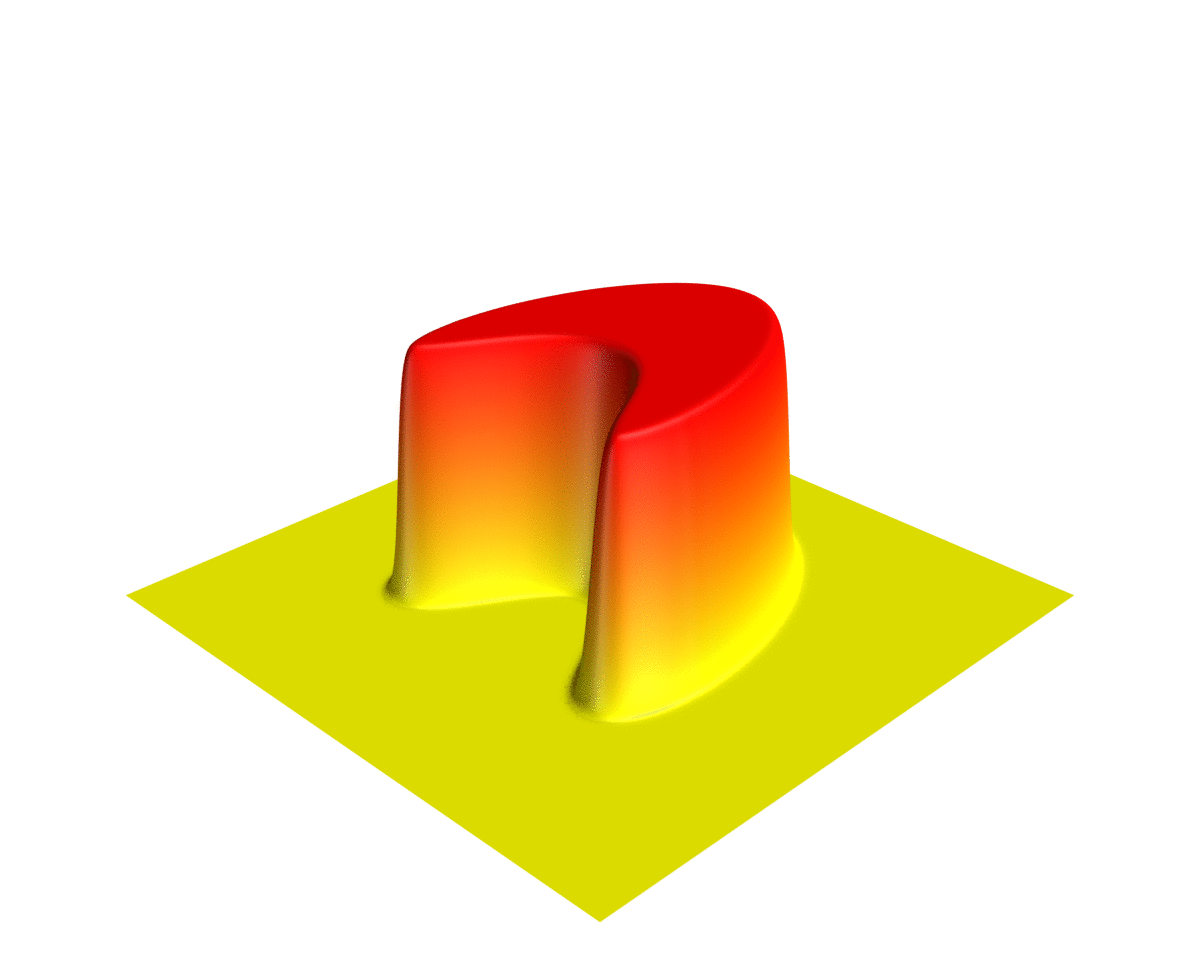|
Bond Valuation
Bond valuation is the process by which an investor arrives at an estimate of the theoretical fair value, or intrinsic worth, of a bond. As with any security or capital investment, the theoretical fair value of a bond is the present value of the stream of cash flows it is expected to generate. Hence, the value of a bond is obtained by discounting the bond's expected cash flows to the present using an appropriate discount rate. In practice, this discount rate is often determined by reference to similar instruments, provided that such instruments exist. Various related yield-measures are then calculated for the given price. Where the market price of bond is less than its par value, the bond is selling at a discount. Conversely, if the market price of bond is greater than its par value, the bond is selling at a premium. For this and other relationships between price and yield, see below. If the bond includes embedded options, the valuation is more difficult and combines option pri ... [...More Info...] [...Related Items...] OR: [Wikipedia] [Google] [Baidu] |
Bond (finance)
In finance, a bond is a type of Security (finance), security under which the issuer (debtor) owes the holder (creditor) a debt, and is obliged – depending on the terms – to provide cash flow to the creditor (e.g. repay the principal (i.e. amount borrowed) of the bond at the Maturity (finance), maturity date and interest (called the coupon (bond), coupon) over a specified amount of time.) The timing and the amount of cash flow provided varies, depending on the economic value that is emphasized upon, thus giving rise to different types of bonds. The interest is usually payable at fixed intervals: semiannual, annual, and less often at other periods. Thus, a bond is a form of loan or IOU. Bonds provide the borrower with external funds to finance long-term investments or, in the case of government bonds, to finance current expenditure. Bonds and Share capital, stocks are both Security (finance), securities, but the major difference between the two is that (capital) stockholders h ... [...More Info...] [...Related Items...] OR: [Wikipedia] [Google] [Baidu] |
Credit Spread (bond)
Credit spread may refer to: * Credit spread (option) * Credit spread (bond) {{disambig ... [...More Info...] [...Related Items...] OR: [Wikipedia] [Google] [Baidu] |
Florida State University
Florida State University (FSU or Florida State) is a Public university, public research university in Tallahassee, Florida, United States. It is a senior member of the State University System of Florida and a preeminent university in the state. Chartered in 1851, it is located on Florida's oldest continuous site of higher education. Florida State University maintains 17 colleges, as well as 58 centers, facilities, labs, institutes, and professional training programs. In 2023, the university enrolled 43,701 students from all 50 states and 135 countries. Florida State is home to Florida's only national laboratory, the National High Magnetic Field Laboratory, and was instrumental in the commercial development of the anti-cancer drug Taxol. Florida State University also operates the John & Mable Ringling Museum of Art, the State Art Museum of Florida and one of the nation's largest museum/university complexes. The university is accredited by the Southern Association of College ... [...More Info...] [...Related Items...] OR: [Wikipedia] [Google] [Baidu] |
Black–Scholes Equation
In mathematical finance, the Black–Scholes equation, also called the Black–Scholes–Merton equation, is a partial differential equation (PDE) governing the price evolution of derivatives under the Black–Scholes model. Broadly speaking, the term may refer to a similar PDE that can be derived for a variety of options, or more generally, derivatives. Consider a stock paying no dividends. Now construct any derivative that has a fixed maturation time T in the future, and at maturation, it has payoff K(S_T) that depends on the values taken by the stock at that moment (such as European call or put options). Then the price of the derivative satisfies :\begin \frac + \frac\sigma^2 S^2 \frac + rS\frac - rV = 0 \\ V(T, s) = K(s) \quad \forall s \end where V(t, S) is the price of the option as a function of stock price ''S'' and time ''t'', ''r'' is the risk-free interest rate, and \sigma is the volatility of the stock. The key financial insight behind the equation is that, under ... [...More Info...] [...Related Items...] OR: [Wikipedia] [Google] [Baidu] |
Rational Pricing
Rational pricing is the assumption in financial economics that asset prices – and hence asset pricing models – will reflect the arbitrage-free price of the asset as any deviation from this price will be "arbitraged away". This assumption is useful in pricing fixed income securities, particularly bonds, and is fundamental to the pricing of derivative instruments. Arbitrage mechanics Arbitrage is the practice of taking advantage of a state of imbalance between two (or possibly more) markets. Where this mismatch can be exploited (i.e. after transaction costs, storage costs, transport costs, dividends etc.) the arbitrageur can "lock in" a risk-free profit by purchasing and selling simultaneously in both markets. In general, arbitrage ensures that "the law of one price" will hold; arbitrage also equalises the prices of assets with identical cash flows, and sets the price of assets with known future cash flows. The law of one price The same asset must trade at the same ... [...More Info...] [...Related Items...] OR: [Wikipedia] [Google] [Baidu] |
Partial Differential Equation
In mathematics, a partial differential equation (PDE) is an equation which involves a multivariable function and one or more of its partial derivatives. The function is often thought of as an "unknown" that solves the equation, similar to how is thought of as an unknown number solving, e.g., an algebraic equation like . However, it is usually impossible to write down explicit formulae for solutions of partial differential equations. There is correspondingly a vast amount of modern mathematical and scientific research on methods to numerically approximate solutions of certain partial differential equations using computers. Partial differential equations also occupy a large sector of pure mathematical research, in which the usual questions are, broadly speaking, on the identification of general qualitative features of solutions of various partial differential equations, such as existence, uniqueness, regularity and stability. Among the many open questions are the existence ... [...More Info...] [...Related Items...] OR: [Wikipedia] [Google] [Baidu] |
Stochastic Calculus
Stochastic calculus is a branch of mathematics that operates on stochastic processes. It allows a consistent theory of integration to be defined for integrals of stochastic processes with respect to stochastic processes. This field was created and started by the Japanese people, Japanese mathematician Kiyosi Itô during World War II. The best-known stochastic process to which stochastic calculus is applied is the Wiener process (named in honor of Norbert Wiener), which is used for modeling Brownian motion as described by Louis Bachelier in 1900 and by Albert Einstein in 1905 and other physical diffusion processes in space of particles subject to random forces. Since the 1970s, the Wiener process has been widely applied in financial mathematics and economics to model the evolution in time of stock prices and bond interest rates. The main flavours of stochastic calculus are the Itô calculus and its variational relative the Malliavin calculus. For technical reasons the Itô integ ... [...More Info...] [...Related Items...] OR: [Wikipedia] [Google] [Baidu] |
Deterministic
Determinism is the metaphysical view that all events within the universe (or multiverse) can occur only in one possible way. Deterministic theories throughout the history of philosophy have developed from diverse and sometimes overlapping motives and considerations. Like eternalism, determinism focuses on particular events rather than the future as a concept. Determinism is often contrasted with free will, although some philosophers claim that the two are compatible. A more extreme antonym of determinism is indeterminism, or the view that events are not deterministically caused but rather occur due to random chance. Historically, debates about determinism have involved many philosophical positions and given rise to multiple varieties or interpretations of determinism. One topic of debate concerns the scope of determined systems. Some philosophers have maintained that the entire universe is a single determinate system, while others identify more limited determinate systems. ... [...More Info...] [...Related Items...] OR: [Wikipedia] [Google] [Baidu] |
Interest Rate Derivative
In finance, an interest rate derivative (IRD) is a derivative whose payments are determined through calculation techniques where the underlying benchmark product is an interest rate, or set of different interest rates. There are a multitude of different interest rate indices that can be used in this definition. IRDs are popular with all financial market participants given the need for almost any area of finance to either hedge or speculate on the movement of interest rates. Modeling of interest rate derivatives is usually done on a time-dependent multi-dimensional lattice ("tree") or using specialized simulation models. Both are calibrated to the underlying risk drivers, usually domestic or foreign short rates and foreign exchange market rates, and incorporate delivery- and day count conventions. The Heath–Jarrow–Morton framework is often used instead of short rates. Types The most basic subclassification of interest rate derivatives (IRDs) is to define linear and n ... [...More Info...] [...Related Items...] OR: [Wikipedia] [Google] [Baidu] |
Bond Option
In finance, a bond option is an option to buy or sell a bond at a certain price on or before the option expiry date. These instruments are typically traded OTC. *A European bond option is an option to buy or sell a bond at a certain date in future for a predetermined price. *An American bond option is an option to buy or sell a bond ''on or before'' a certain date in future for a predetermined price. Generally, one buys a call option on the bond if one believes that interest rates will fall, causing an increase in bond prices. Likewise, one buys the put option if one believes that interest rates will rise. One result of trading in a bond option, is that the price of the underlying bond is "locked in" for the term of the contract, thereby reducing the credit risk associated with fluctuations in the bond price. Valuation Bonds, the underlyers in this case, exhibit what is known as pull-to-par: as the bond reaches its maturity date, all of the prices involved with the bond be ... [...More Info...] [...Related Items...] OR: [Wikipedia] [Google] [Baidu] |
Rational Pricing
Rational pricing is the assumption in financial economics that asset prices – and hence asset pricing models – will reflect the arbitrage-free price of the asset as any deviation from this price will be "arbitraged away". This assumption is useful in pricing fixed income securities, particularly bonds, and is fundamental to the pricing of derivative instruments. Arbitrage mechanics Arbitrage is the practice of taking advantage of a state of imbalance between two (or possibly more) markets. Where this mismatch can be exploited (i.e. after transaction costs, storage costs, transport costs, dividends etc.) the arbitrageur can "lock in" a risk-free profit by purchasing and selling simultaneously in both markets. In general, arbitrage ensures that "the law of one price" will hold; arbitrage also equalises the prices of assets with identical cash flows, and sets the price of assets with known future cash flows. The law of one price The same asset must trade at the same ... [...More Info...] [...Related Items...] OR: [Wikipedia] [Google] [Baidu] |



